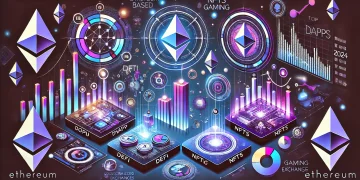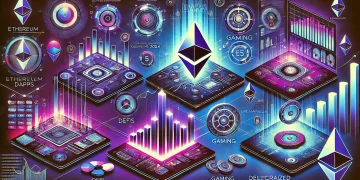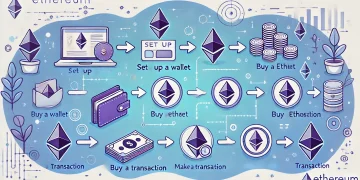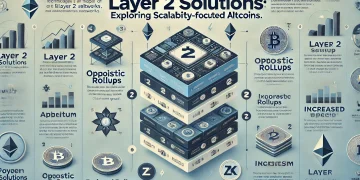Smart contracts are revolutionizing the way businesses operate by introducing unprecedented levels of automation, transparency, and efficiency to various organizational processes. These self-executing contracts with predefined rules written directly into code are transforming traditional business operations across multiple industries, from finance to supply chain management.
The Evolution of Smart Contract Technology
Smart contracts have come a long way since their conceptual introduction by Nick Szabo in 1994. Modern blockchain platforms have made these self-executing contracts a reality, enabling businesses to automate complex processes while ensuring security and transparency. The technology has evolved from simple cryptocurrency transactions to sophisticated systems capable of handling intricate business logic and multi-party agreements.
The development of more advanced blockchain platforms has significantly expanded the capabilities of smart contracts. Ethereum’s introduction of Turing-complete programming marked a major milestone, enabling developers to create complex applications that can handle virtually any computational task. This advancement has opened up new possibilities for business process automation across various sectors.
Transforming Financial Services
The financial services sector has emerged as one of the primary beneficiaries of smart contract automation. Traditional banking processes that once required extensive manual intervention and multiple intermediaries can now be executed automatically through smart contracts. This transformation is particularly evident in lending, trading, and insurance operations.
Smart contracts are enabling instant loan approvals based on predefined criteria, automated trading systems that execute trades when specific conditions are met, and insurance claims that can be processed automatically when triggered by verified events. These applications are reducing processing times from days or weeks to minutes while significantly cutting operational costs.
Supply Chain Management Revolution
Smart contracts are fundamentally changing supply chain management by introducing unprecedented levels of transparency and automation. These self-executing contracts can automatically track shipments, verify deliveries, and release payments when predefined conditions are met. This automation eliminates many manual processes and reduces the potential for errors and disputes.
The integration of IoT devices with smart contracts has created even more powerful supply chain solutions. Real-time tracking data can automatically trigger contract executions, ensuring that all parties in the supply chain have accurate, up-to-date information and that payments are processed promptly upon successful delivery confirmation.
Real Estate and Property Management
The real estate industry is experiencing a significant transformation through smart contract implementation. Property transactions, traditionally known for their complexity and lengthy processing times, are being streamlined through automated systems. Smart contracts can handle everything from property listings to rental agreements and payment processing.
Rental property management has been particularly revolutionized by smart contract automation. Lease agreements, rent collection, and maintenance requests can all be managed through smart contracts, creating a more efficient and transparent system for both landlords and tenants. These automated systems ensure timely payments and proper execution of lease terms.
Human Resources and Payroll Automation
Smart contracts are streamlining human resources and payroll processes by automating salary payments, benefits distribution, and performance-based compensation. These systems can automatically execute payments based on predefined criteria, such as attendance records, performance metrics, or project completion milestones.
The automation of HR processes extends beyond basic payroll functions to include recruitment, onboarding, and employee benefits management. Smart contracts can automatically verify credentials, process employment agreements, and manage benefit enrollments, significantly reducing administrative overhead and improving accuracy.
Legal Contract Management
The legal industry is witnessing a transformation in contract management through smart contract technology. Traditional legal agreements are being converted into programmable contracts that can automatically execute and enforce terms. This automation reduces the need for manual oversight and minimizes the potential for contractual disputes.
Smart contracts are particularly effective in managing intellectual property rights, licensing agreements, and revenue sharing arrangements. These automated systems can track usage, calculate royalties, and distribute payments according to predetermined terms, ensuring all parties receive their fair share promptly and accurately.
Quality Control and Compliance
Smart contracts are revolutionizing quality control and compliance processes by automating verification procedures and ensuring adherence to regulatory requirements. These systems can automatically check if products or services meet specified standards and trigger appropriate actions based on the results.
The ability to encode compliance requirements directly into smart contracts ensures that business processes automatically follow regulatory guidelines. This automation reduces the risk of non-compliance and provides an immutable audit trail of all transactions and verifications.
Manufacturing and Production Processes
In the manufacturing sector, smart contracts are automating various aspects of production processes, from order management to quality control. These automated systems can trigger production orders based on inventory levels, schedule maintenance procedures, and manage supplier relationships.
The integration of smart contracts with Industrial IoT devices enables real-time monitoring and automated decision-making in manufacturing operations. This combination creates more efficient production systems that can automatically adjust to changing conditions and requirements.
FAQs About Smart Contract Automation
How do smart contracts ensure security in business processes?
Smart contracts use cryptographic techniques and blockchain technology to ensure security. They are immutable once deployed and execute exactly as programmed, preventing unauthorized modifications and ensuring transaction integrity.
What industries benefit most from smart contract automation?
Financial services, supply chain management, real estate, and manufacturing are among the industries seeing the most significant benefits from smart contract automation, though the technology has applications across virtually all sectors.
How do smart contracts reduce operational costs?
Smart contracts eliminate intermediaries, reduce manual processing, and minimize errors, leading to significant cost savings in various business operations.
What are the limitations of smart contract automation?
Smart contracts require careful programming and testing, as errors in the code can have serious consequences. They also need reliable data inputs and may face scalability challenges on some blockchain platforms.
How can businesses implement smart contract solutions?
Businesses can implement smart contracts by identifying suitable processes for automation, selecting appropriate blockchain platforms, and working with experienced developers to create and deploy the contracts.
Conclusion: The Future of Business Automation
Smart contracts are fundamentally changing how businesses operate by introducing unprecedented levels of automation, transparency, and efficiency. As the technology continues to mature, we can expect to see even more innovative applications across different industries and business processes.
The future of business automation through smart contracts looks promising, with continued developments in blockchain technology and programming capabilities expanding the potential applications. Organizations that embrace this technology early will likely gain significant competitive advantages through improved efficiency, reduced costs, and enhanced operational capabilities.


























